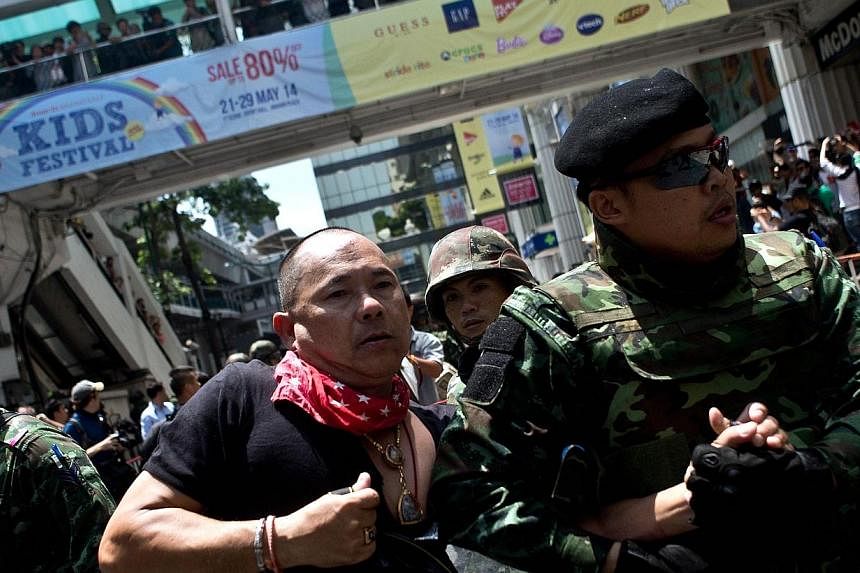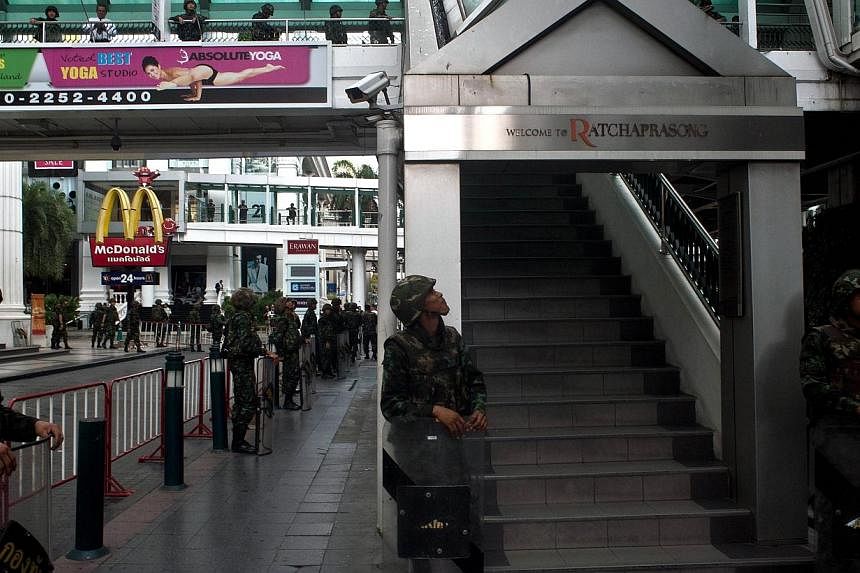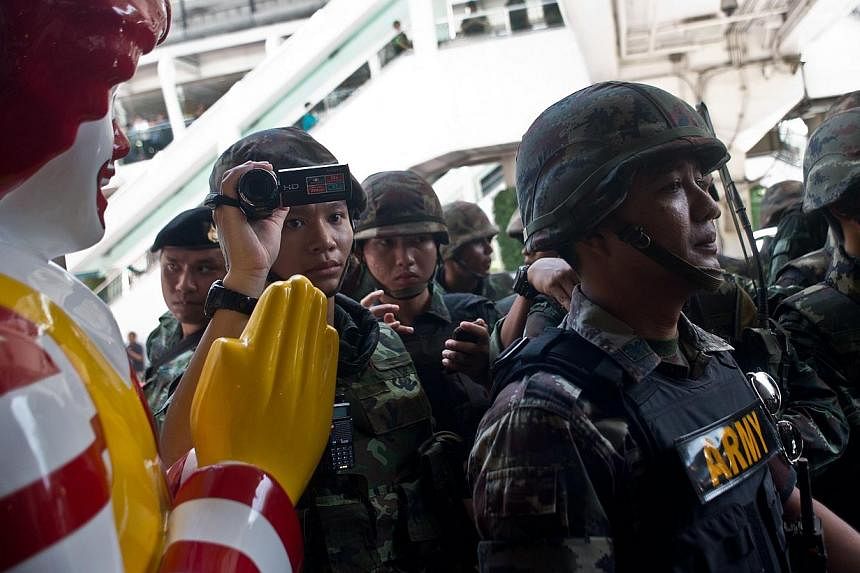The small but angry crowd surges outside the glass windows of McDonald's in downtown Bangkok's upscale Rachaprasong intersection.
"Elections! Elections!" they scream. Many wave hand-made banners denouncing the army's latest coup d'etat. They surge forward against a phalanx of soldiers with riot shields, who push back. Anger flares and there is a scuffle, a soldier is on the ground. Armed soldiers stay in the background watching. On the walkways above, anti-coup protesters shout abuse.
The crowds that have been protesting around Bangkok since Friday are small, but the speed at which they have assembled dwarfs the reaction time following the last coup d'etat in 2006. Today, there is social media tools such as Line and Facebook to help them organise.
The people are a mix of middle and lower middle class, many supportive of the government ousted in army chief General Prayuth Chan-ocha's lightning power seizure on Thursday. But most insist this is not about Thaksin Shinawatra, the ex-premier whose network and influence the junta is clearly intent on purging.
This is about the army again holding up democracy at the point of a gun. This is Thailand's 12th coup since 1932.
On Saturday afternoon at Victory Monument, one of Bangkok's biggest intersections and a transport hub, protesters gathered in small knots that eventually merged.
But after staying relatively calm for an hour or so, with little provocation from either side, enraged protesters chased and mobbed soldiers dragging one of them away. It turned into a melee, with soldiers and protesters briefly fighting on the street.
Troops with automatic weapons surrounded the shoving knot. Fingers on the trigger, they watched overhead walkways closely.
"Be careful," one said. He gestured upwards. "Someone can throw a bomb."
There were protests in northern Chiang Mai too, and the army has been putting on a show of force in Khon Kaen, the heart of pro-government "red shirt" territory. It has rolled tanks out in the city.
On Sunday, there were protesters at the American Embassy in Bangkok. Just a few dozen held up placards demanding elections. But as at Rachaprasong, the troop presence was formidable - which only enraged the protesters even more.
The junta has launched a wide purge of people - politicians, activists, academics and on Sunday morning, the first Thai journalist. Mr Pravit Rojanaphruk is seen to be supportive of the ousted government or critical of the royalist establishment. It has summoned editors of 18 of Thailand's biggest newspapers for a "chat" on Sunday afternoon.
But on the streets it is caught between trying to enforce martial law for the sake of its credibility, and to appear weak in allowing defiant civilians to take over streets.
Junta supremo General Prayuth Chan-ocha has seized all power, dissolving the Senate on Saturday and kicking people seen as not entirely on the army's side, off his National Council for Peace and Order (NCPO).
Many activists and politicians are in hiding, and some are trying to make arrangements to flee the country. Those in detention are held incommunicado. The army, under martial law, has the power to hold people for seven days without charge, and can hold them longer if it files charges against them.
This time around, unlike in 2006 when the army threw out then premier Thaksin, loathed by the old money conservative, royalist elites who see him as a corrupt manipulator of the masses and a threat to the monarchy, the junta is cracking down more forcefully. Elections are off the table at least for the near future. The junta has also muzzled the media.
The junta is still in a crackdown and consolidation phase, and the troops are edgy.
But cracking down on the media and on militant elements among sprawling pro-government red shirts is one thing, containing widespread dismay among the urban middle classes is another.
In Bangkok under the scorching summer sun, small mobs are humiliating soldiers unused to dealing with screaming civilians. The protests continuously edge closer to fights.
Thailand remains in a highly precarious state. This simmering instability could continue for weeks, or explode sooner than anyone expects.




